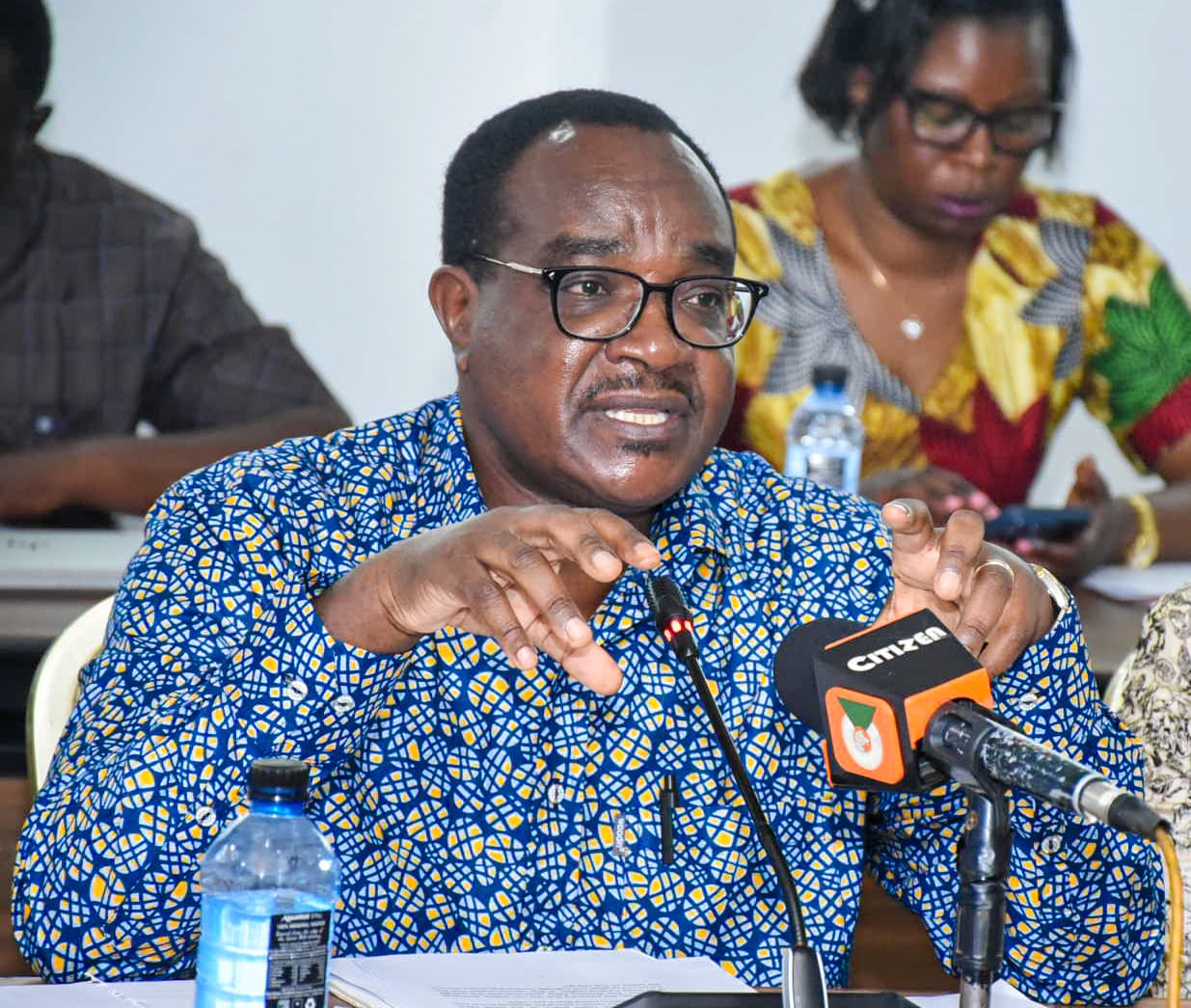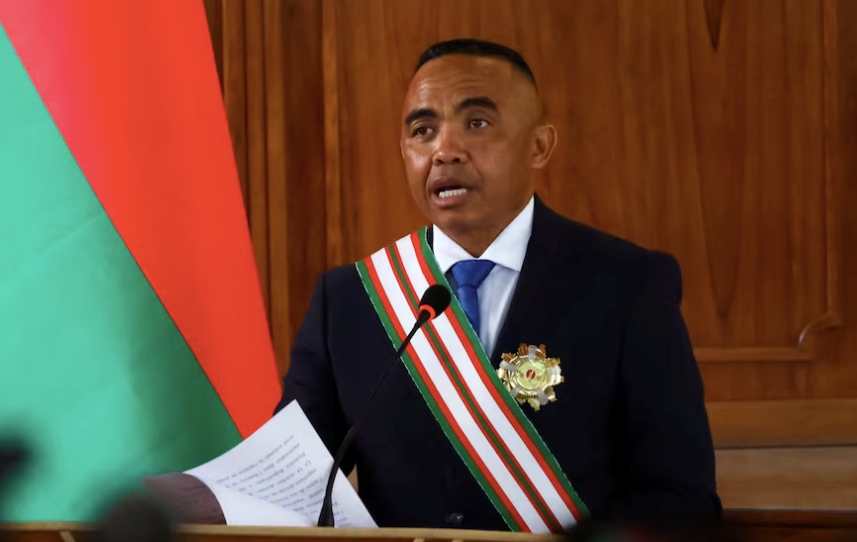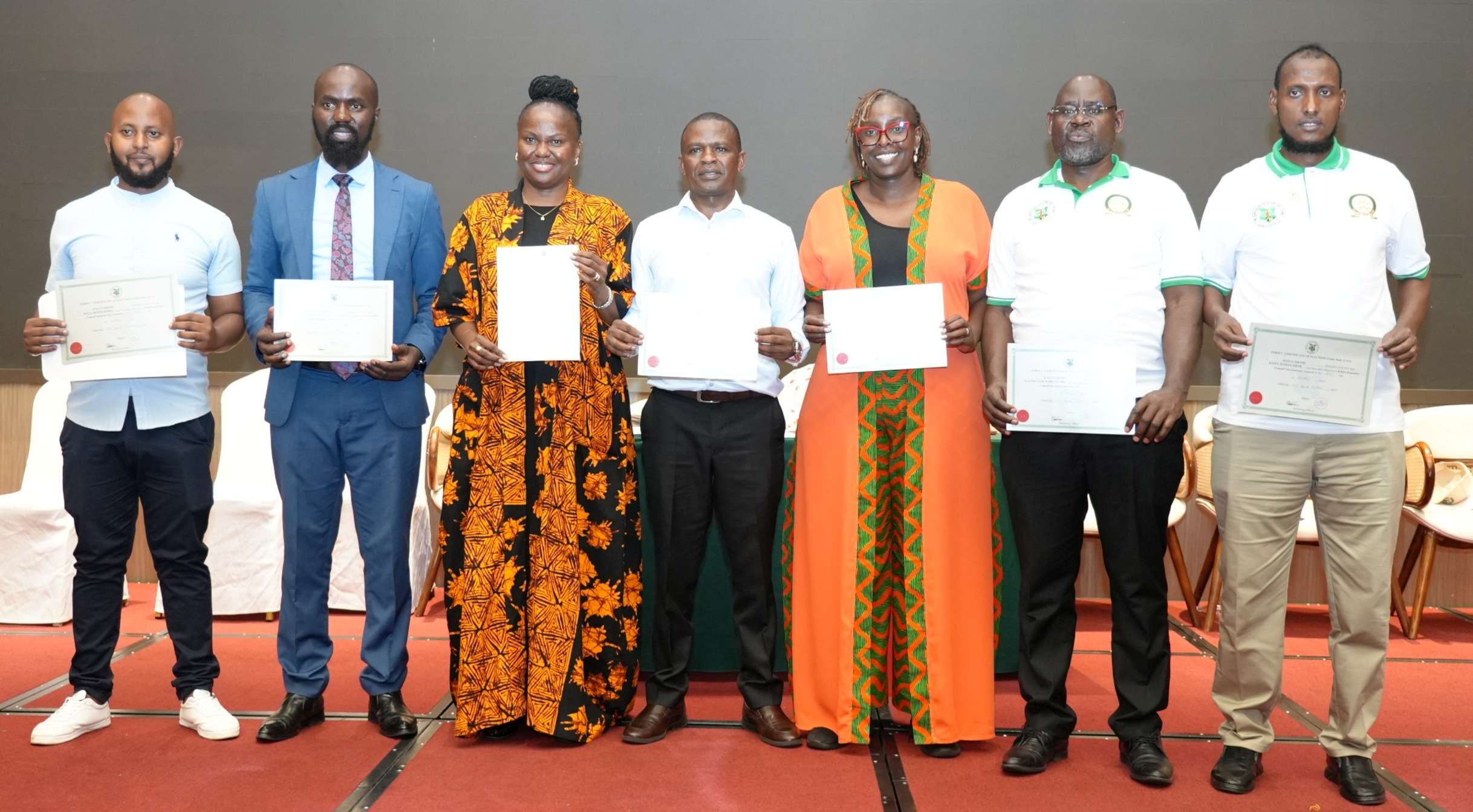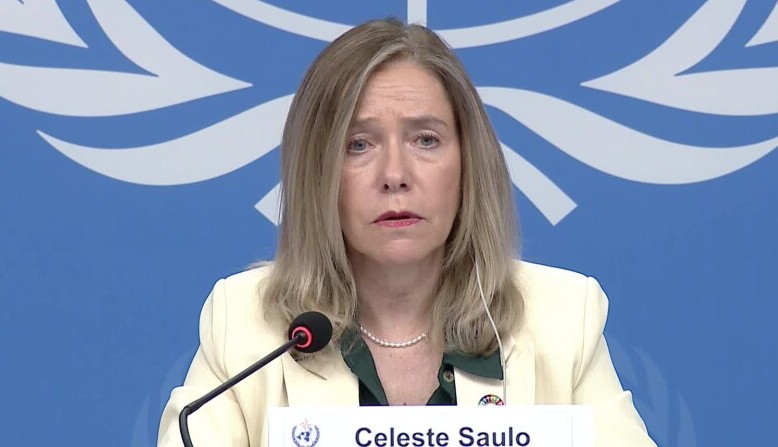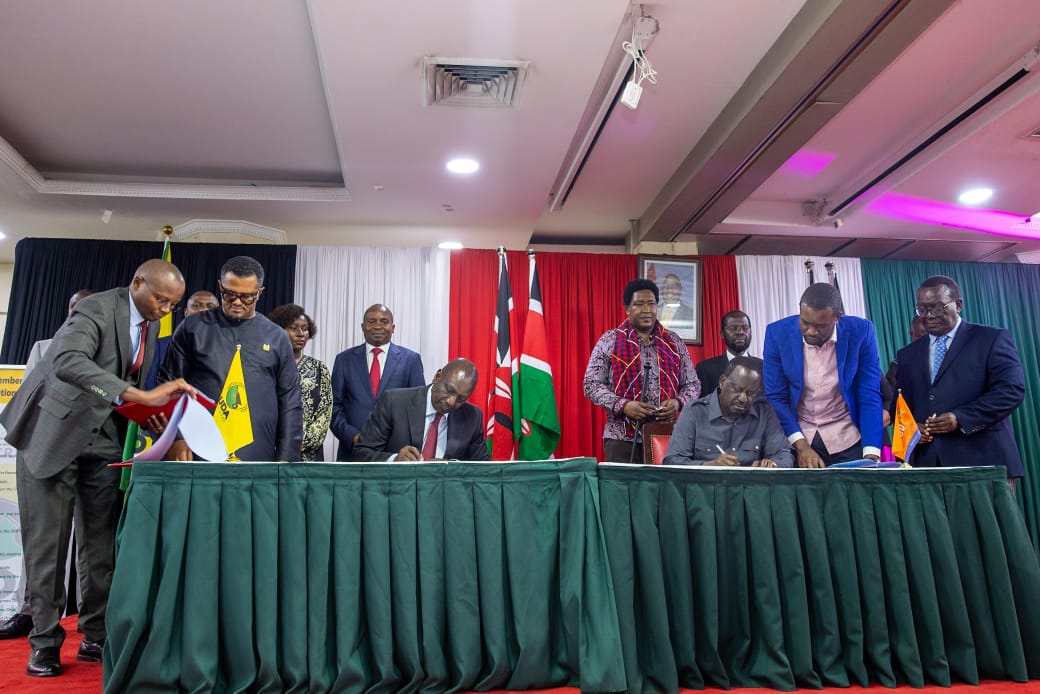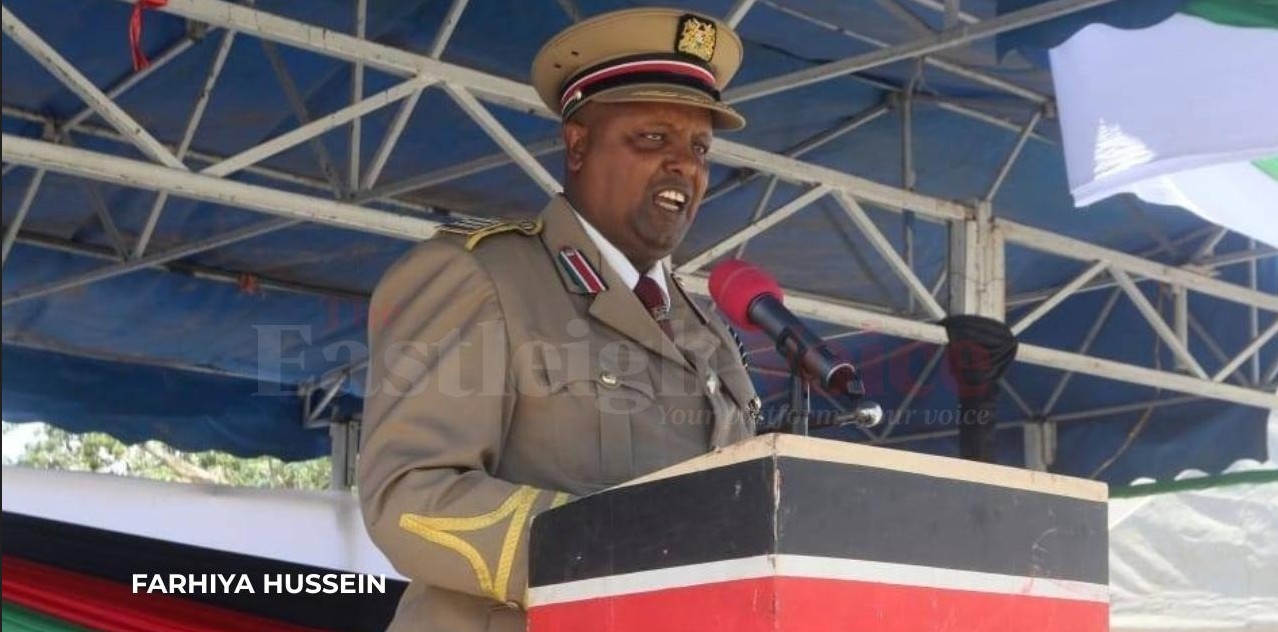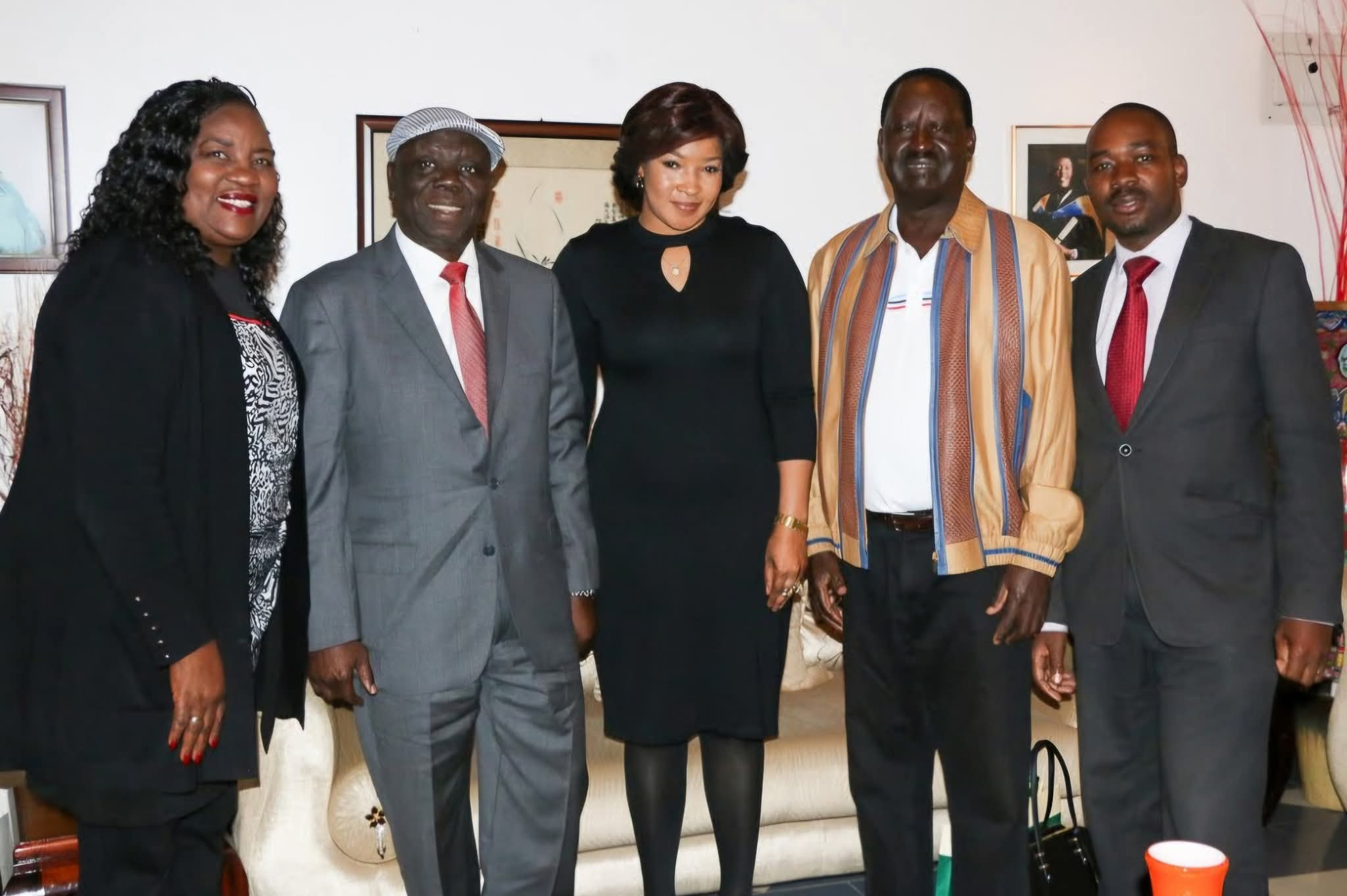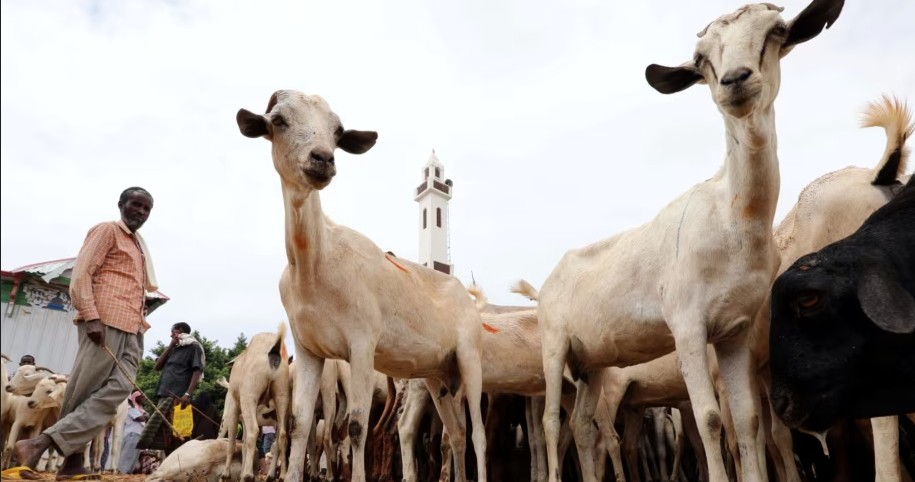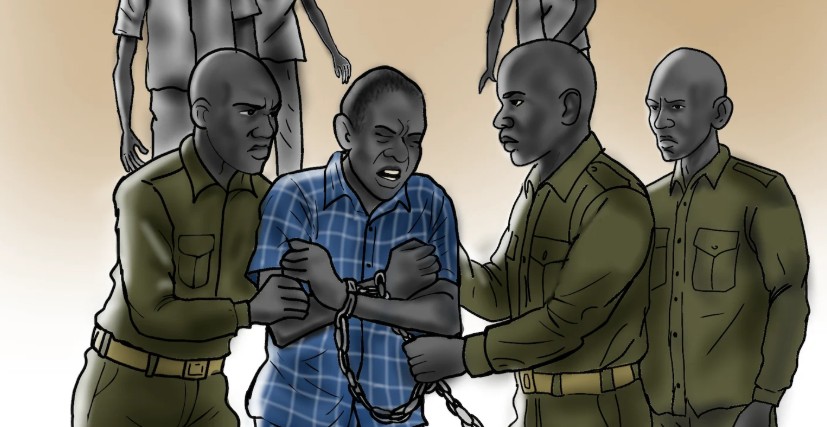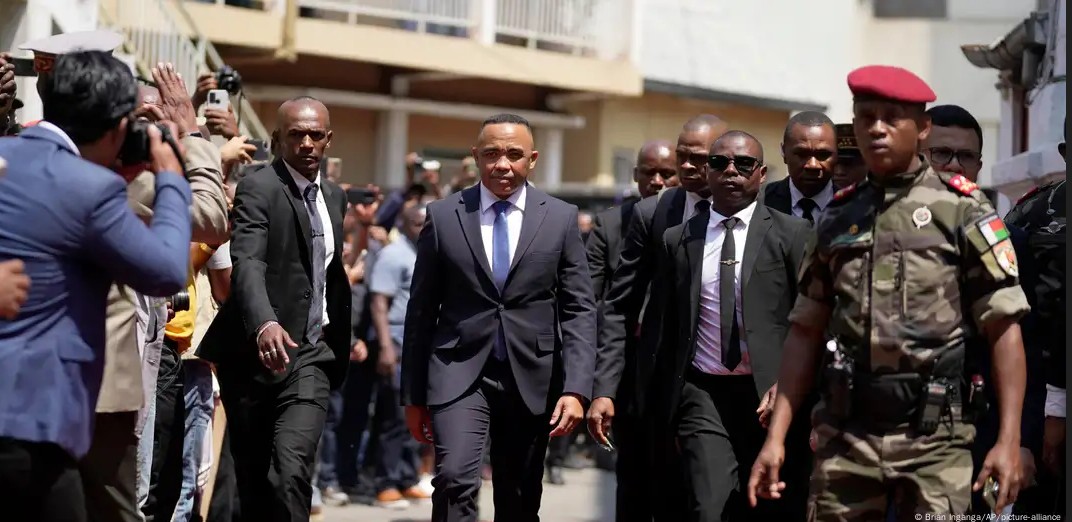Raila declares bid to succeed Moussa Faki as AUC chair
Former Nigerian President Olusegun Obasanjo has endorsed Raila Odinga's candidacy.
Kenyan opposition leader Raila Odinga on Thursday publicly confirmed his interest in succeeding Moussa Faki Mahamat, a Chad national, as the next chairperson of the African Union Commission (AUC).
Backed by Nairobi, Odinga on Thursday expressed his readiness to serve the continent, stating that Africa deserves better leadership.
More To Read
- President Ruto outlines four Raila-inspired pillars to drive Kenya’s growth
- Raila Odinga’s life offers five key lessons to guide Kenya’s future - President Ruto
- Songs of unity, farewell mark Raila’s tribute in Kitui’s Mashujaa celebrations
- Chadema official claims authorities blocked him, party members from attending Raila's funeral
- Raila was a political engineer, and I was his student- Ruto
- Ruto: I reached out to Raila after 2022 elections to right historical injustices
"I have been consulting widely. I am ready for the chairmanship of the African Union," he told a presser in Karen, Nairobi, flanked by former Nigerian President Olusegun Obasanjo.
Odinga emphasised the importance of marshalling the continent's resources and working together to elevate Africa to greater heights.
Endorsing his longtime friend, Obasanjo stated, "I do not doubt that my friend, who is standing next to me, is the right person to take on the mantle. If the EAC backs him, I believe the rest of the continent will support him."
He added, "People who have held the position of head of government, either as President or Prime Minister, are most suitable for this job. Looking at it critically. It is the turn of East Africa. If there is a change of guard at the AU level soon, then some of us must take it upon ourselves to give proper advice."
Odinga served as Prime Minister in the Grand Coalition Government and is the leader of the opposition's Azimio la Umoja coalition and the Orange Democratic Movement (ODM).
He has also served as the AU's High Representative for Infrastructure Development in Africa.
According to the AU, the AUC chair is the chief executive officer, legal representative of the AU and chief accounting officer. The office holder is elected by the assembly for a four-year term that is renewable once. Faki assumed office in March 2017 after he was elected on January 30 that year, and was re-elected on February 6, 2021.
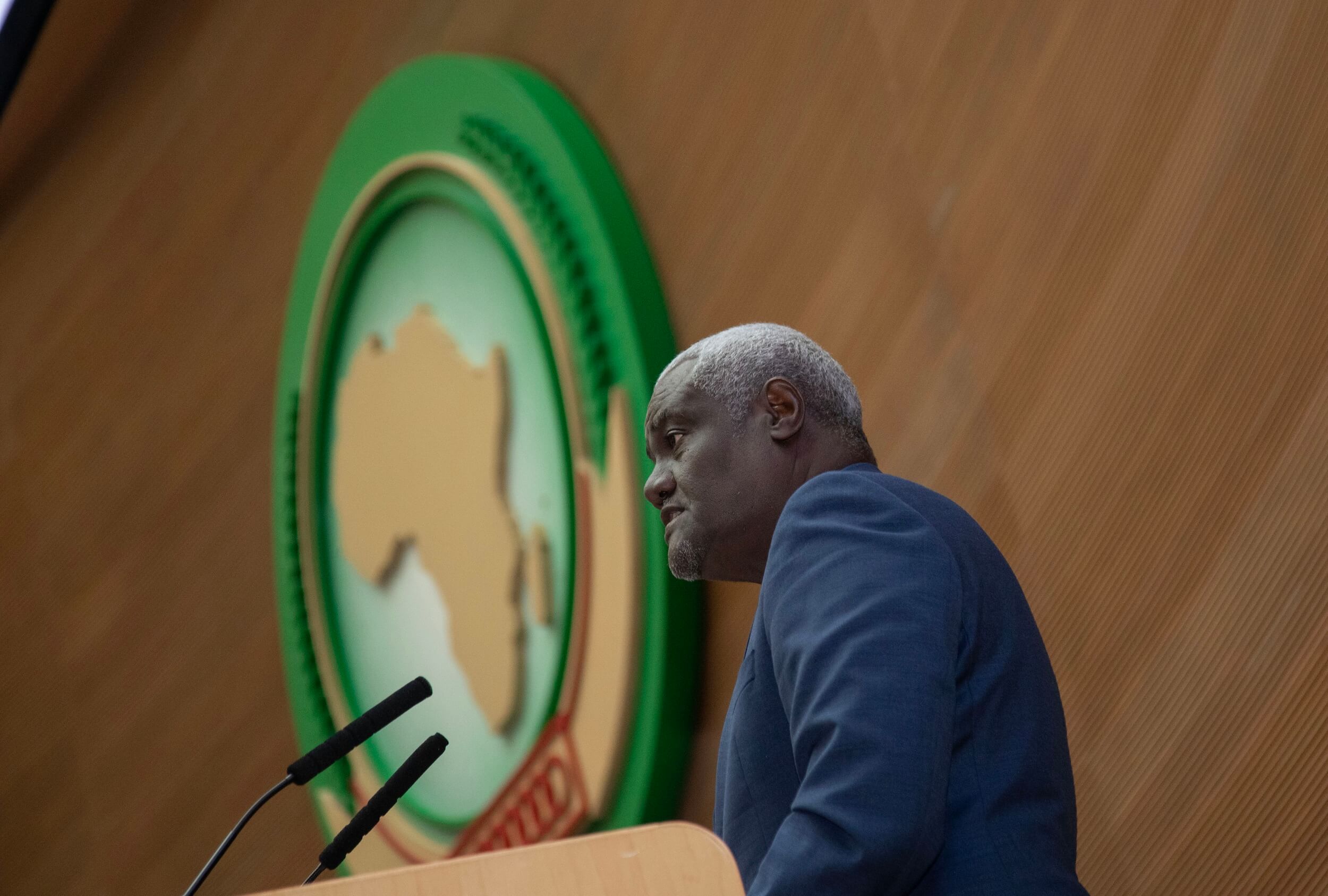 Chadian Moussa Faki Mahamat, chair of the African Union Commission (AUC), gives an address during the 44th Ordinary Session of the Executive Council of the AU, that took place on February 14-15, 2023. (Photo: X/ African Union)
Chadian Moussa Faki Mahamat, chair of the African Union Commission (AUC), gives an address during the 44th Ordinary Session of the Executive Council of the AU, that took place on February 14-15, 2023. (Photo: X/ African Union)
Regional imbalance
The initial phases of the selection process for the Pan-African body's future executive are already in progress.
Potential candidates have begun lobbying before their respective capitals officially nominate them in May this year.
Without the endorsement of the capital, a Kenyan national cannot vie for the top AUC job.
Since the transition of the Organisation of African Unity (OAU) into the AU in 2002, five elections have taken place to elect members of the commission, including the chairperson.
The highest-ranking Kenyan within the continental body's leadership was Erastus Mwencha, who served as the deputy chairperson from 2008 to 2016.
Kenya's former Foreign minister Amina Mohamed lost the race to Faki after seven rounds of voting. Continental and regional divisions contributed to her failure to secure the seat.
The Central African region has held the position for three years, while the Southern and Western regions have each served for one year. The Eastern and Northern Africa regions have yet to hold the position.
An AU report regarding preparations for the February 2025 election of senior AUC leaders highlights the lack of equitable representation of regions and member states over the past 24 years.
The report, obtained by The Eastleigh Voice, was presented during the Executive Council session in Addis Ababa, Ethiopia.
Rotation between regions and within a region has been limited, with certain regions holding positions for more than two terms. The report says intra-regional rotation has also been insufficient in ensuring fair representation of member states from each region.
According to the eligibility of regions to submit candidates for the upcoming election, based on predictable inter-regional rotation following the English alphabetical order, only eastern Africa meets the requirement.
Geopolitics and its impact
Odinga's candidacy faces regional dynamics and obstacles if geopolitics and posturing come into play.
Firstly, the AU Executive Council must agree and decide that it is the turn of the EA region to select and present a candidate.
Before the election in Addis Ababa next year, the 11 countries in the region must unanimously agree to endorse Raila's candidacy, indicating that they will vote as a bloc and actively lobby for him.
EA is known for nominating more candidates than available seats for any African Union post, highlighting the region's challenge with division.
This division and other continental factors caused Mohamed to lose the vote to Faki, a much less glamorous candidate who served as Chad's Foreign minister. Some Eastern countries broke their pledges and supported the Chadians at the expense of the eastern candidate.
"It was indeed a painful and diplomatic farce that Kenya could not get full support from our team, even when the President had given his word on the candidacy of the Kenyan nominee," a South Sudanese diplomat, who requested anonymity, said in Addis Ababa at the time.
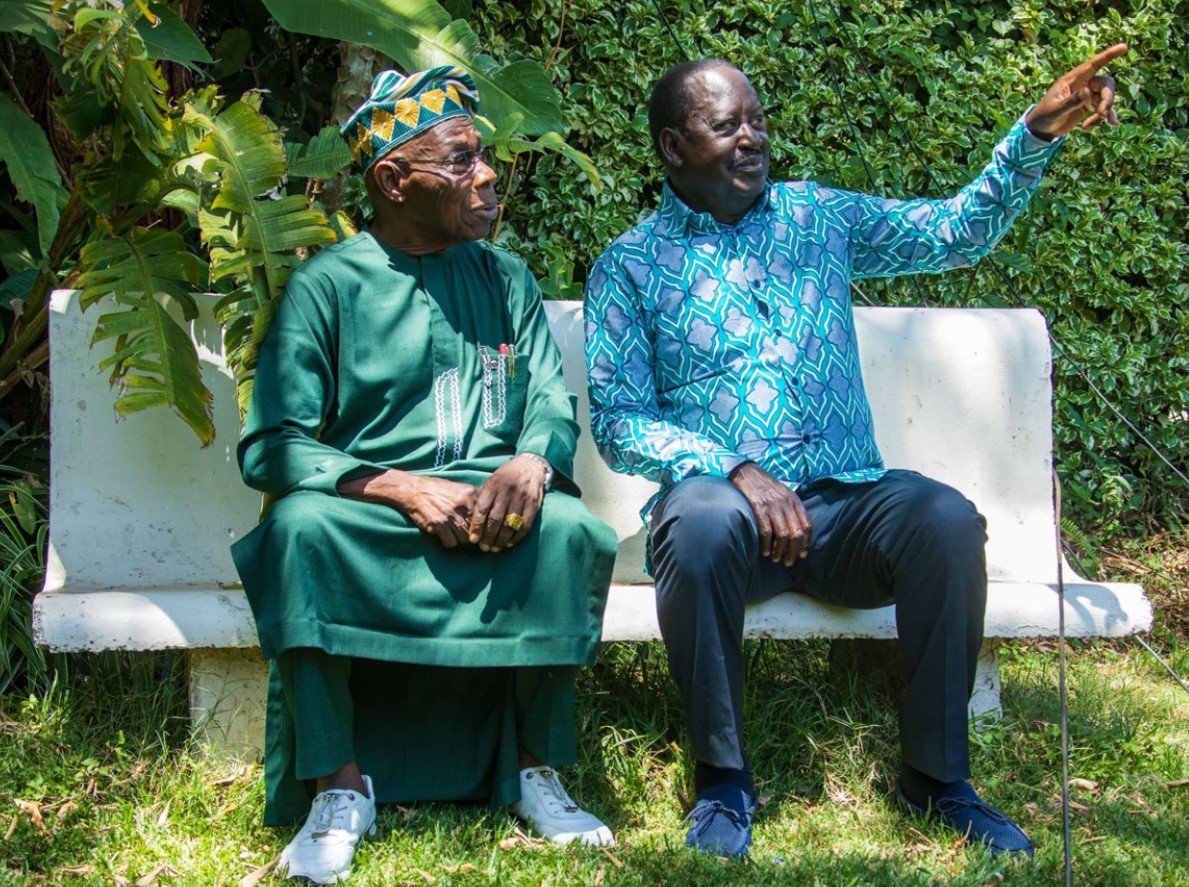 Former Nigerian President Olusegun Obasanjo is pictured with Kenyan opposition leader Raila Odinga in Karen, Nairobi, on February 15, 2024. (Photo: X/ ODM)
Former Nigerian President Olusegun Obasanjo is pictured with Kenyan opposition leader Raila Odinga in Karen, Nairobi, on February 15, 2024. (Photo: X/ ODM)
A continental diplomat, who previously served as a permanent representative of an Eastern country to the AU, informed The Eastleigh Voice that "it won't be an easy process to get Raila to the finishing line considering the Eastern region's tendency to rarely reach consensus on matters". This diplomat did not wish to be named.
In September 2019, Kenya and Djibouti, both members of the Eastern region, engaged in a fierce competition for the United Nations Security Council (UNSC) non-permanent seat in New York, as diplomats endeavoured to outshine each other in lobbying for votes.
Djibouti, defeated by Kenya in the election for the AU representative for the UNSC seat, highlighted Nairobi's maritime boundary dispute with Somalia, suggesting it as evidence that Kenya may not be reliable in managing regional security issues.
Kenya was the AU-endorsed candidate but Djibouti went ahead and contested for the seat but later lost.
The continental body, which has no vote at the UN, traditionally agrees to endorse member states "to act in its name" at the UNSC.
Efforts by then AU chairperson, Egyptian President Abdel Fattah el-Sisi, to convene a meeting between President Uhuru Kenyatta and Djibouti's Ismail Omar Guelleh, on the margins of the UN General Assembly, failed to produce a solution.
Recently, Kenya and the Comoros vigorously vied for the AU chairperson position. In the final days of the competition, Nairobi conceded and withdrew its bid in favour of the Comorian President Azali Assoumani.
Ahead of the AU Peace and Security Council election, EA has presented more candidates than available seats, displaying the region's struggle with division.
Top Stories Today
